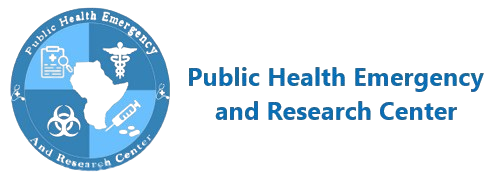About Us
About PHERC
Public Health Emergency and Research Center has been a cornerstone in the pursuit of comprehensive
healthcare solutions, humanitarian assistance, and cutting-edge research within the challenging
landscape of the Somali community in the Horn of Africa. Established in 2024, PHERC has emerged as a
dynamic non-governmental organization dedicated to addressing intricate health needs, humanitarian
crises, and contributing to the advancement of research in the region of horn of Africa

VISION
Our vision is to witness communities in humanitarian settings achieving universal and equitable access to
basic essential health services, empowering individuals, including children, to enhance their own
livelihoods through targeted public health and medical interventions
MISSION
Our mission is to restore hope among vulnerable children and communities affected by diseases, health
emergencies, and natural calamities. We strive to reach millions of people including children, with a
comprehensive range of health and care services. Our commitment is grounded in the utilization of the
latest data analysis and research to improve health and well-being for all.
MAIN OBJECTIVE
We aim to provide a holistic medical and public health response for children and disadvantaged
communities. This involves offering essential basic life-saving supplies, emergency preparedness and
response, training, empowerment, and exposure to life-changing innovations and research.
SPECIFIC OBJECTIVES
The Organization shall have the following specific
objects: Field work objectives
a) Consult and support local authorities to mobilize resources and provide basic life-saving supplies and
health services for vulnerable people and children during emergency and non-emergency situations.
b) Prepare for and respond to the health consequences of disasters and crises, including epidemics and
pandemics.
c) To facilitate the rehabilitation of traumatized communities including children after the impact of
natural disaster or health emergency through sports and other psychosocial support aid
d) To train and build capacity of the health emergency volunteers on emergency response including early
detection of diseases and unusual events, provision of essential basic health services, community
engagement and sensitization and psychosocial support.
e) Promote and advocate for equitable sharing in basic health determinants in society–nutritious food,
basic education, safe water and proper WASH practice, decent housing, adequate income, and peace.
f) To ensure that communities including children are safe and healthy by providing health education to
caregivers and basic health services including outreach activities to vaccine every child including those
live in hard-to-reach areas.
g) To support community-led initiatives with a focus on using sustainable technologies to enhance health
and community development.
h) To build capacity and sensitize children and communities on sexual reproductive health and other
preventable infectious illnesses.
Research work objectives:
i) Undertake research capability assessments of partner institutions in the Horn of Africa to assess the
current and target research capabilities, propose plans to reach the target, implement them and monitor
progress.
j) Provide training to non-research staff from health institutions, including leadership training,
placements/shadowing in research support, and training in data and sample collection.
k) Advance the knowledge and research skills of researchers from these institutions in generic,
laboratory, and subject-specific skills.
l) Undertake basic and applied research in the area of health emergencies and other natural disaster
impact on health.
Research work objectives
i) Undertake research capability assessments of partner institutions in the Horn of Africa to assess the
current and target research capabilities, propose plans to reach the target, implement them and monitor
progress.
j) Provide training to non-research staff from health institutions, including leadership training,
placements/shadowing in research support, and training in data and sample collection.
k) Advance the knowledge and research skills of researchers from these institutions in generic,
laboratory, and subject-specific skills.
l) Undertake basic and applied research in the area of health emergencies and other natural disaster
impact on health.
INTEGRATED APPROACH
PHERC adopts an integrated approach, recognizing the interconnectedness of health, humanitarian aid,
and research. The organization is committed to offering holistic solutions, combining medical and public
health interventions with targeted humanitarian assistance and impactful research initiatives
HEALTH and HUMANITRIAN OBJECTIVES
In the field, PHERC engages with local authorities, mobilizing resources to provide critical health services
during both emergency and non-emergency situations. The organization focuses on preparing for and
responding to health consequences arising from disasters, crises, epidemics, and pandemics through
One Health approach. PHERC places a significant emphasis on rehabilitating and supporting traumatized
individuals including children, through psychosocial support
RESEARCH INITIATIVES
Acknowledging the pivotal role of research in addressing health challenges, PHERC actively engages in
research activities. The organization conducts capacity assessments of partner institutions in the Horn of
Africa, advancing knowledge through training programs, and undertaking basic and applied research in
areas such as health emergencies and the impact of climate crisis and natural disasters on health
ADVOCACY and COMMUNITY EMPOWERMENT
Beyond immediate interventions, PHERC is committed to advocating for equitable access to fundamental
health determinants, including nutrition, education, water and sanitation, housing, income, and peace.
The organization empowers communities through sustainable technologies, fostering local initiatives,
and ensuring that individuals actively participate in their health and overall development through One
Health approach
